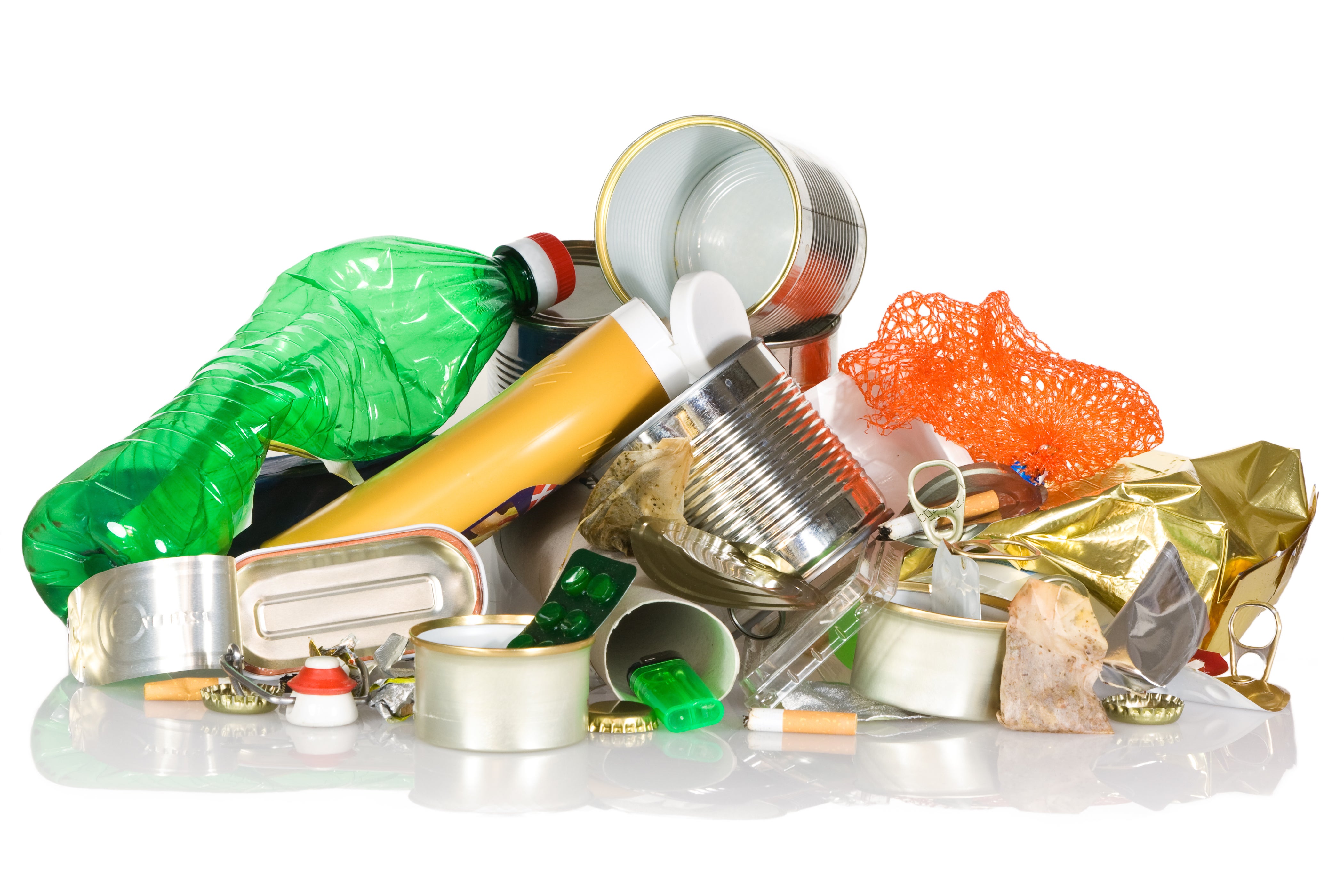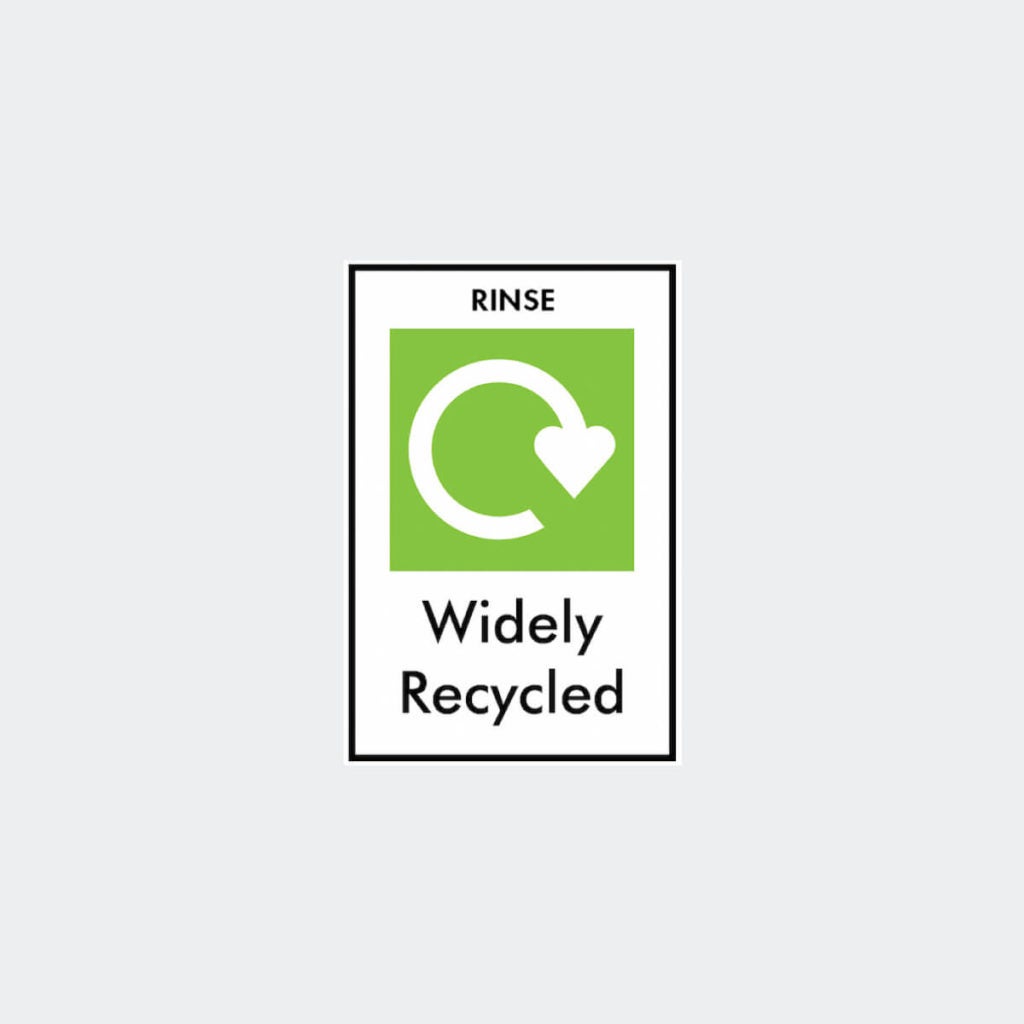. Though you’re not alone if you think that sorting through your plastic, cardboard and glass is a confusing job: research has found that 80 per cent of UK households are unclear on how to recycle effectively.
Which plastics should you be separating? Can you recycle coloured glass with clear? Do you need to wash the remnants of last night’s korma out of the takeaway container before chucking it? There are plenty of things to consider.
can contaminate materials, reducing the volumes of what can actually be recycled,” she says. “Improved segregation at the point of waste disposal will increase the opportunity to recycle and reuse more materials.” So in short, sorting your rubbish properly when you first put it out is key to improving the recycling process once it goes beyond your front garden.
Brimelow goes on to explain that you can’t just throw any old thing out with your recycling waste. “We handle thousands of tonnes of business waste from across the UK, and find lots of random objects that have been thrown out in recycle bins,” she says. “We’ve had shoes, car batteries and even underwear, mixed in with plastics.”
The other way that people tend to go wrong, according to Brimelow, is by trying too hard. “Good intentions – ‘wishcycling’ – contributes to the problem of non-recyclable material being mixed in with recycling,” she says. “People are keen to do their bit, but end up throwing things in their recycling bins more out of hope and wishing that waste can be recycled, rather than checking what can and can’t be recycled.”
Thankfully, these are all changes you can start making without too much effort. Sort your rubbish more carefully by using separate bins when you’re throwing things away, don’t put unusual items in with your plastics, and check if what you’re sending off to be recycled is actually suitable.
In London, there are four waste authorities that deal with recycling: one for North London, one for East, one for West, and one for South. It’s best to check with your relevant authority to see what can and can’t be recycled where you live, as it differs between areas.

How to recycle like a pro
Follow these tips and you’ll be recycling like a pro in no time.
Avoid putting plastic film in your recycle bin
These aren’t widely recycled via kerbside collections. Instead, check local supermarkets, as these sometimes have specialist collections for ‘flexibles’ such as plastic packaging films. When buying online, it’s also worth checking whether retailers have collection schemes in place for flexibles.
Double check on-pack labels
Not all packaging will have a recycling label on it, but more and more feature clearer messages about ‘recycle’ and ‘don’t recycle’. There’s also more and more labelling that tells you when to ‘recycle with lid on’ or ‘rinse and recycle’
Black plastic can be recycled in some boroughs
in recycling, so it’s best to check the rules for your specific area.
Rinse any food items thoroughly
If you look closely, some recycling symbols will tell you to ‘rinse’. This is because plastic and cardboard covered with food not only contaminate everything else in your recycling bin, it can attract vermin to the recycling centres (and the streets).

Squeezable tubes need to be completely clean
offers a special recycling scheme for these types of containers.
Not all glass is recyclable
We’re all used to putting a few wine bottles out for collection after a good weekend (or, indeed, a bad weekend). But it’s important to keep in mind that glass cookware and drinking glasses are not recyclable in the same way. This is because they’re treated to withstand high tempteratures and they can explode during the recycling process. Drinking glasses (or that Bolognese-stained Pyrex dish you no longer want) can be sold online or donated instead. Broken ones need to go into landfill, sadly.
Food tins and drinks cans are recyclable — but don’t crush them
offers a service to recycle these.
Not all packaging is recyclable
If you’ve received a haul of beauty products or any other products for that matter, it’s important to separate the packaging. Cardboard and paper can be sent out to be recycled (although make sure it’s clean — that means no pizza-infused Franco Manca boxes). However, it’s important to note that polystyrene and bubble wrap are a no-go, so these should either be reused or put in with general waste.
Foil can be recycled as long as it’s clean
As with all other recycling, foil just needs to be clean before you put it out. Aluminium takeaway containers and biscuit wrappers, for example, are good to go with recycling. Just make sure you give them a good rinse and they don’t have any food residue left behind.
.


Post a Comment
0Comments